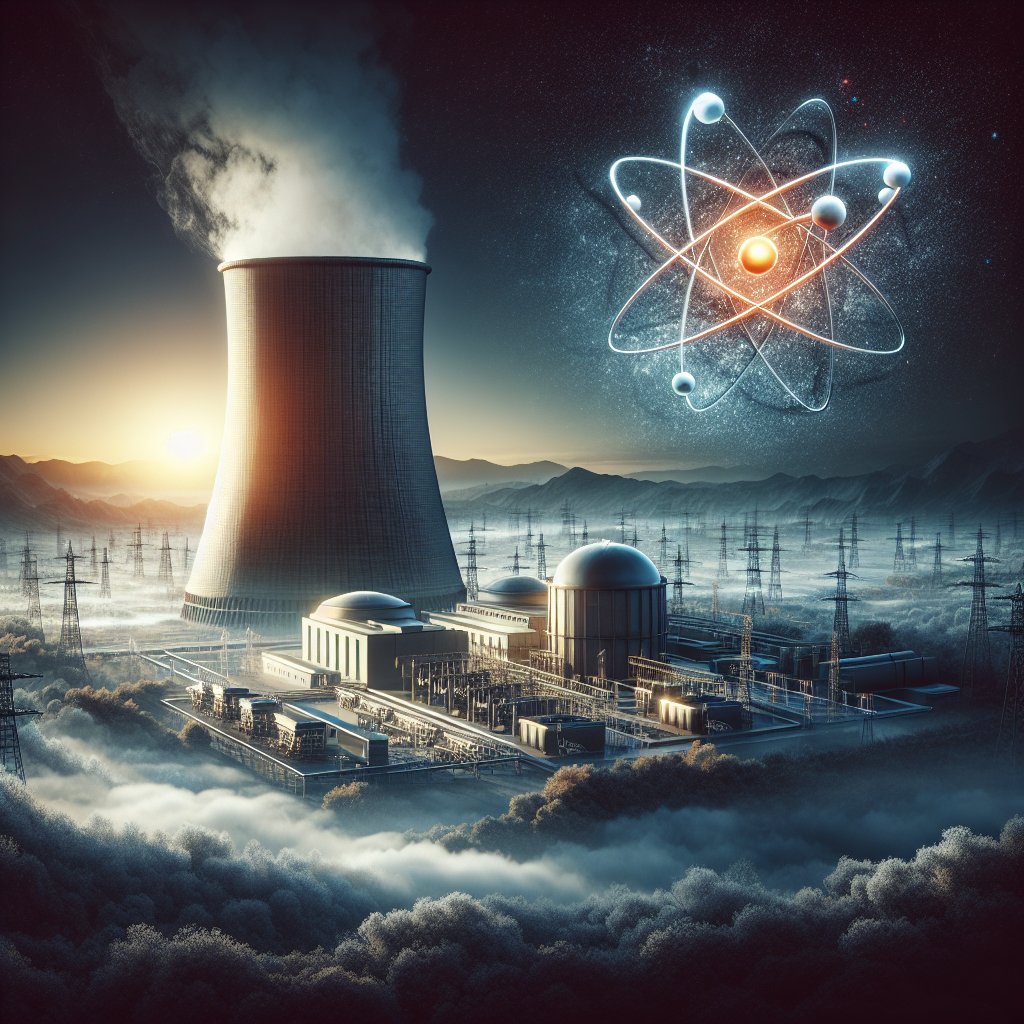IAEA Launches Atoms4NetZero Initiative to Support Global Transition to Net Zero Emissions with Nuclear Energy
Advanced Energy Modelling Tools to Guide Policy Makers in Achieving Clean Energy Goals and Sustainable Development.

The International Atomic Energy Agency (IAEA) has launched the Atoms4NetZero initiative, an advanced energy modelling platform designed to help countries make data-driven decisions in their transition to net zero greenhouse gas emissions. The initiative is part of the IAEA's broader effort to evaluate the role of nuclear energy in decarbonizing hard-to-abate sectors such as transportation, steel, and cement, which are responsible for nearly 60% of global emissions.
Atoms4NetZero leverages powerful energy scenario modelling tools to assess the full potential of nuclear power, including beyond electricity generation. The initiative aims to offer countries detailed, science-based insights to help shape sustainable energy systems, emphasizing nuclear energy's role in reducing emissions and providing long-term energy security.
Supporting Net Zero Goals with Advanced Modelling Tools
Henri Paillere, Head of the IAEA’s Planning and Economic Studies Section, explains that the first step for any nation seeking to meet net zero targets is to assess its existing energy infrastructure. "By analyzing historical data and modelling future energy demand, policymakers can identify areas for improvement and prioritize investments in clean and resilient energy systems," said Paillere.
Currently, over 20 countries have pledged to work towards tripling nuclear capacity as part of their commitment to achieving net zero emissions. This global push is underscored by a significant increase in nuclear reactor construction, with more than 60 reactors under construction worldwide, a third of them in China. According to the International Energy Agency (IEA), global nuclear capacity must more than double by 2050 to stay on track for net zero, a goal echoed by the IAEA's projections.
Decarbonizing Hard-to-Abate Sectors with Nuclear Energy
Achieving net zero emissions requires more than just clean electricity. The decarbonization of heavy industries, including petrochemicals, steel, and cement production, is essential. These sectors contribute significantly to global GHG emissions and pose a unique challenge in the energy transition. Through low-carbon energy carriers such as hydrogen and nuclear energy, Atoms4NetZero explores how these sectors can be transformed to reach net zero targets.
Using advanced IAEA modelling tools like the Model for Energy Supply Strategy Alternatives and their General Environmental Impacts (MESSAGE), Atoms4NetZero helps countries explore energy supply chains that integrate nuclear energy with other technologies, creating scenarios that map energy flows from resource extraction to end-use demand. This holistic approach allows decision-makers to visualize the interconnections between energy systems and their environmental impact.
Optimizing Nuclear and Renewable Energy Integration
Renewable energy sources such as wind and solar are vital to achieving clean energy systems, but Atoms4NetZero also underscores the complementary role of nuclear power. By optimizing the integration of renewables with nuclear energy, the initiative aims to create more resilient, secure, and sustainable energy systems. Atoms4NetZero’s modelling can help evaluate resource availability, grid stability, and the impact of renewable integration.
"Incorporating nuclear energy alongside renewable sources provides countries with an opportunity to diversify their energy mix and ensure a more reliable power supply, essential for a successful energy transition," said Carolynn Scherer, Head of the IAEA’s International Project on Innovative Nuclear Reactors and Fuel Cycles Section.
Assisting Developing Countries in Their Energy Transitions
Energy modelling plays a critical role, especially in regions like Africa, where many countries face serious energy deficits. "Policymakers are exploring various energy options, including nuclear and renewables," explained Enobot Agboraw, Executive Secretary of the African Commission on Nuclear Energy. "Atoms4NetZero provides scientifically-based evidence, helping decision-makers make informed, objective choices to address both climate change and energy deficits."
The IAEA has been working closely with African nations, providing technical support through its technical cooperation programme. In collaboration with the International Renewable Energy Agency (IRENA), the IAEA has assisted the African Union in developing the Continental Power System Masterplan, a strategy to evaluate energy options and pool resources for sustainable energy investments across the continent.
Expanding Techno-Economic Analyses and Regional Studies
Atoms4NetZero also conducts in-depth techno-economic analyses, providing comparative studies on low-carbon energy sources tailored to specific countries or regions. Through collaborations with stakeholders including governments, research organizations, and financial institutions, the initiative fosters a global dialogue on clean energy planning and policy development.
For example, Atoms4NetZero is currently working with Estonian researchers to incorporate carbon constraints into the country’s MESSAGE model for net zero scenarios in electricity and heat production. Estonia, which relies heavily on fossil fuels for power generation, is considering the introduction of small modular reactors as part of its transition to a low-carbon future.
Through its diverse activities, Atoms4NetZero provides advisory services, workshops, training, and stakeholder engagement opportunities, empowering countries to make informed decisions about their clean energy transition.
Atoms4NetZero is helping to fill the critical knowledge gap regarding nuclear energy's role in the global transition to net zero emissions. By offering advanced scenario modelling tools, the IAEA is assisting countries in making informed, science-based decisions that contribute to building sustainable, resilient, and low-carbon energy systems. The initiative also supports the broader goal of achieving energy security, economic resilience, and climate mitigation globally.
For more information about the Atoms4NetZero initiative and its modelling tools, visit the IAEA’s official website.
- READ MORE ON:
- Atoms4NetZero
- IAEA
- Nuclear Energy
- Henri Paillere










